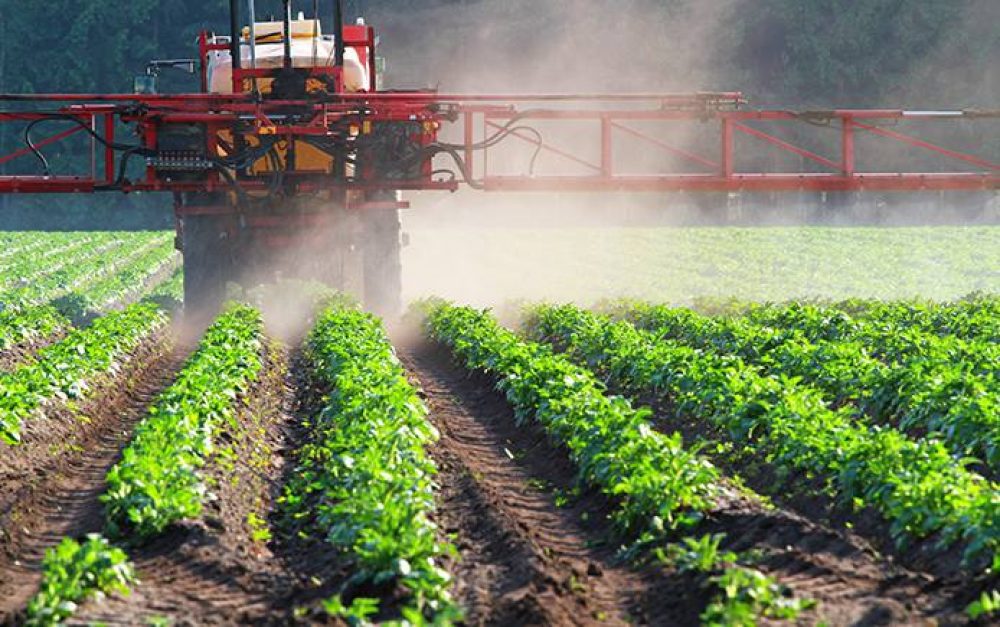Skilled farmers are aware that every tool and every technique for raising a crop has its risks and rewards.
Skilled farmers are aware that every tool and every technique for raising a crop has its risks and rewards. Cultivation and tillage can damage soil structure, promote erosion and disturb important soil organisms. Cover crops could tie up nutrients and become weeds in future crops. This is why growers learn how to manage the tools they use, so they can maximize the benefits and control the detrimental effects.
Unfortunately, producers on an overwhelming majority of production acres in the United States overuse the pesticide hammer from the agricultural toolbox without considering the risks. But, there is some hope on the horizon with the introduction of proposed national legislation called the Protect America’s Children from Toxic Pesticides Act (PACTPA).
We have forgotten
Every year, our farm contacts all of the nearby farms and area cooperatives to remind them that we raise organic produce. And, every year, we are hyper-vigilant whenever spraying implements come down the road and spray planes fly overhead. We are fully aware what off-target herbicide drift can do to our crops, and we have seen the results of drift from insecticides and fungicides. The problem is that we are never sure if the applicator is even willing to consider the damage they might do if they fail to take proper precautions.
This year, a spray rig we had not seen before pulled up to the field south of our farm. The weather conditions were close to perfect if you wanted to ensure that a pesticide would go where it was intended. While I am not a fan of any kind of pesticide, I still crossed the road to introduce myself and thank the applicator for his consideration.
As we conversed, he explained to me how he had carefully formulated the mix and calibrated the equipment to make sure what he was spraying went exactly where it was intended. As we closed our conversation he told me, “…a lot of people seem to have forgotten that these chemicals are dangerous and we need to treat them like they are.”
We need to be reminded
Every year in our county, we observe pesticide applications with clouds of chemicals trailing rapidly away from the spray rig. Each season, we are aware of applications that infringe on wild areas, waterways, homesteads and town boundaries. The airplanes buzz overhead and the “highboy” sprayers scream down the road announcing the importance and urgency of their task — all while ignoring the risks that task carries with it.
Why is it that so few applicators are as concerned about the danger presented by pesticides as the person I encountered this past season?
One of the reasons has to do with the removal of skilled farmers from the land, and the increased control of farmed acres by corporate entities. Whether it is right or not, a hired sprayer typically is less concerned with possible problems than a farmer who is working their own land. And, again, whether it is right or not, an absentee landowner normally pays less attention to the details of how their land is treated. This is one important reason why there must be more forceful reminders that pesticides are dangerous.
We cannot look to chemical companies and the people who sell these products for restraint. It is their job to sell pesticides and they are rarely interested in pointing out the limitations of their tools. It takes an exceptional individual to recognize and maintain a higher standard within this industry. We cannot count on enough individuals to step up.
Sadly, current laws and the government entities who enforce them are failing to remind us that pesticides are a dangerous tool that must be handled with care. The field of agriculture is slanted toward large farms who prefer to use the pesticide hammer for every problem. Certainly, there are all sorts of hammers that come in many pretty packages. But, we seem to have forgotten that families and children in rural communities, farmworkers, food crop farmers, and the environment are not acceptable collateral damage.
PACTPA can be a reminder
The proposed Protect America’s Children from Toxic Pesticides Act could remind all of us that pesticides are, in fact, quite dangerous, and we need to respond as if they are. PACTPA would start by removing organophosphate insecticides, neonicotinoid insecticides and paraquat herbicides from use. This law would close loopholes that allow for conditional or emergency registrations for chemicals that have not met the burden of proof that they can be used safely. This Act would also make it easier to remove a registration once issues have been identified with a product.
As a farmer who has witnessed actions that discount the risk inherent with pesticides, I am encouraged by the possibility that such legislation could be brought to fruition. The process of turning the proposal into law has only just begun. It is important that we all be prepared to continue to push for this sort of legislation for the coming months and years. PACTPA is a much needed reminder that these chemicals are dangerous, and we need to start treating them as such.






